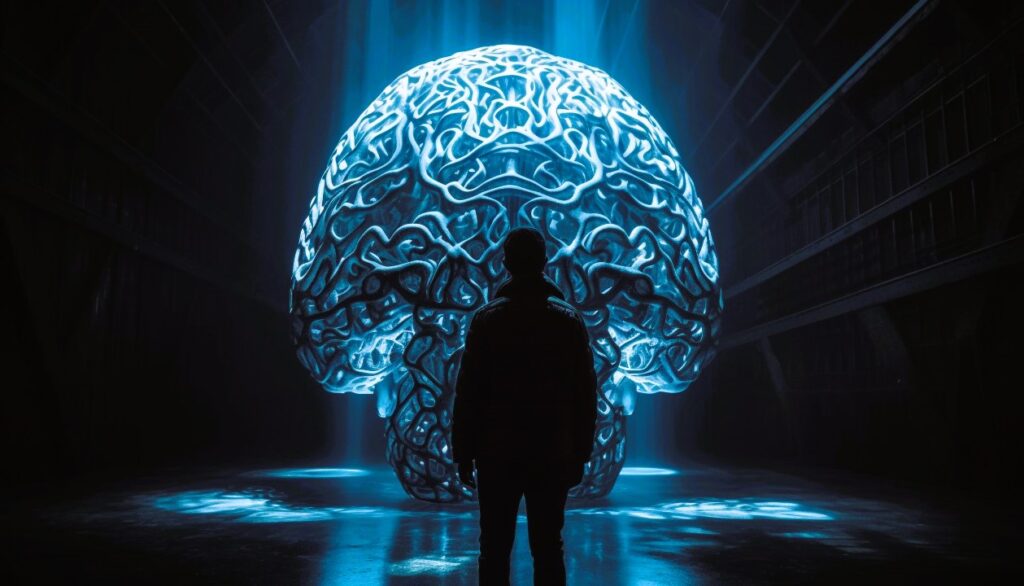Video games have grown from niche hobbies into a globally beloved entertainment medium, captivating millions across all age groups. But beyond the immersive worlds, thrilling challenges, and compelling stories lies a deeper question: how do video games affect our brains? Understanding the psychology of gaming involves looking at the effects of games on cognitive abilities, emotional well-being, and behavioral patterns. Here, we’ll explore the impact of video games on the brain, the benefits and potential drawbacks, and what psychological studies reveal about the growing influence of gaming on our minds.
Cognitive Benefits of Gaming
Video games are often associated with improvements in various cognitive functions, particularly due to the mentally stimulating nature of certain genres. Studies reveal that gamers tend to show enhanced attention, problem-solving abilities, and spatial skills.
- Enhanced Attention and Focus
Action games, in particular, have been found to improve selective attention and mental focus. Research indicates that gamers who regularly play fast-paced games like Call of Duty or Counter-Strike can filter out irrelevant information more efficiently and have faster reaction times than non-gamers. The brain is constantly training to stay alert and process rapid visual cues, honing a player’s ability to concentrate. - Improved Problem-Solving Skills
Games like The Legend of Zelda and Minecraft present complex puzzles and encourage players to strategize to overcome obstacles. This requires players to engage in critical thinking, planning, and decision-making, skills that can carry over into real-life situations. Problem-solving games can stimulate the brain’s prefrontal cortex, the area responsible for decision-making, reasoning, and social behavior. - Enhanced Spatial Awareness
Video games, especially those in 3D environments, contribute to better spatial awareness. First-person shooters and open-world games like GTA V or Fortnite require players to navigate complex environments. Studies show that gamers often have superior spatial navigation skills, which involve visualizing and understanding spatial relationships among objects in their environment. This skill is essential not only in gaming but also in tasks that involve spatial orientation, like driving or reading maps.
Emotional and Psychological Effects
Video games can evoke a wide range of emotions, from excitement to frustration, and even a sense of accomplishment. These emotional experiences impact the brain’s reward systems, as well as emotional processing centers.
- Increased Dopamine Levels
When players complete a challenging level, achieve a high score, or beat a boss, they experience a dopamine release, a neurotransmitter associated with pleasure and reward. This is similar to how our brain rewards other activities, such as exercising or achieving a goal. Dopamine not only enhances enjoyment but also reinforces positive behavior, potentially creating a loop where players are motivated to keep playing for more dopamine boosts. - Stress Relief and Relaxation
Certain games, especially casual and simulation titles like Animal Crossing and Stardew Valley, offer stress relief and relaxation by providing a calming environment. These games offer simple goals without the competitive edge, which can help reduce anxiety and promote relaxation. Gaming can serve as a form of escapism, allowing players to step away from real-life stress and immerse themselves in a virtual world. - The Dark Side of Gaming: Addiction
While dopamine can be beneficial in moderation, excessive gaming can lead to dependency. Video game addiction, or gaming disorder, has been recognized by the World Health Organization as a mental health condition. Addiction occurs when players start using games as their primary coping mechanism, neglecting other areas of life, such as work, school, and social relationships. Game design elements, like loot boxes, daily rewards, and progression systems, can contribute to this by promoting repetitive play and creating psychological cravings.
Social Implications of Gaming

Video games have evolved from single-player experiences into highly social activities, where players interact and communicate with others. The psychological effects of these social interactions can be both positive and negative.
- Building Social Connections
Online multiplayer games like Fortnite, League of Legends, and World of Warcraft enable players to build relationships and form communities with others who share similar interests. These games promote teamwork, communication, and collaboration, leading to lasting friendships and connections. For individuals who may struggle with face-to-face interactions, gaming can provide a platform to develop social skills in a safe environment. - Potential for Cyberbullying and Toxicity
Unfortunately, the online gaming environment can also be a breeding ground for toxicity and cyberbullying. Games that involve competition and anonymity can sometimes lead to aggressive behavior, with some players exhibiting hostility toward others. Studies indicate that online gaming can expose players, particularly younger ones, to negative behaviors such as bullying, harassment, and abusive language. Game developers are implementing measures to reduce toxicity, such as reporting features and stricter community guidelines, but the issue remains a challenge. - Empathy and Prosocial Behavior
Despite the negative aspects, video games can also foster empathy and prosocial behavior. Story-driven games with rich narratives, like The Last of Us and Life is Strange, immerse players in the lives and struggles of the characters. This form of interactive storytelling can help players develop a greater sense of empathy and understanding for others. Games with moral choices allow players to explore different perspectives and the consequences of their decisions, enhancing emotional intelligence. Read about how to use PAL tokens to get discounts on gaming insurance.
Video games affect the brain in profound and varied ways, influencing everything from cognitive skills to social behaviors. While the benefits of gaming include improved attention, enhanced spatial skills, and even relaxation, there are also risks, such as addiction and exposure to online toxicity. Understanding these effects enables players, parents, and developers to make informed choices that maximize the positive impacts of gaming while mitigating potential downsides.
In the end, gaming is a powerful tool that taps into the human brain’s inherent desire for challenge, achievement, and connection. As research on the psychology of gaming continues, society will be better equipped to harness gaming’s potential for learning, social interaction, and personal development. For further reading on gaming and its psychological impact, check out explore resources on IGN for the latest industry insights.


